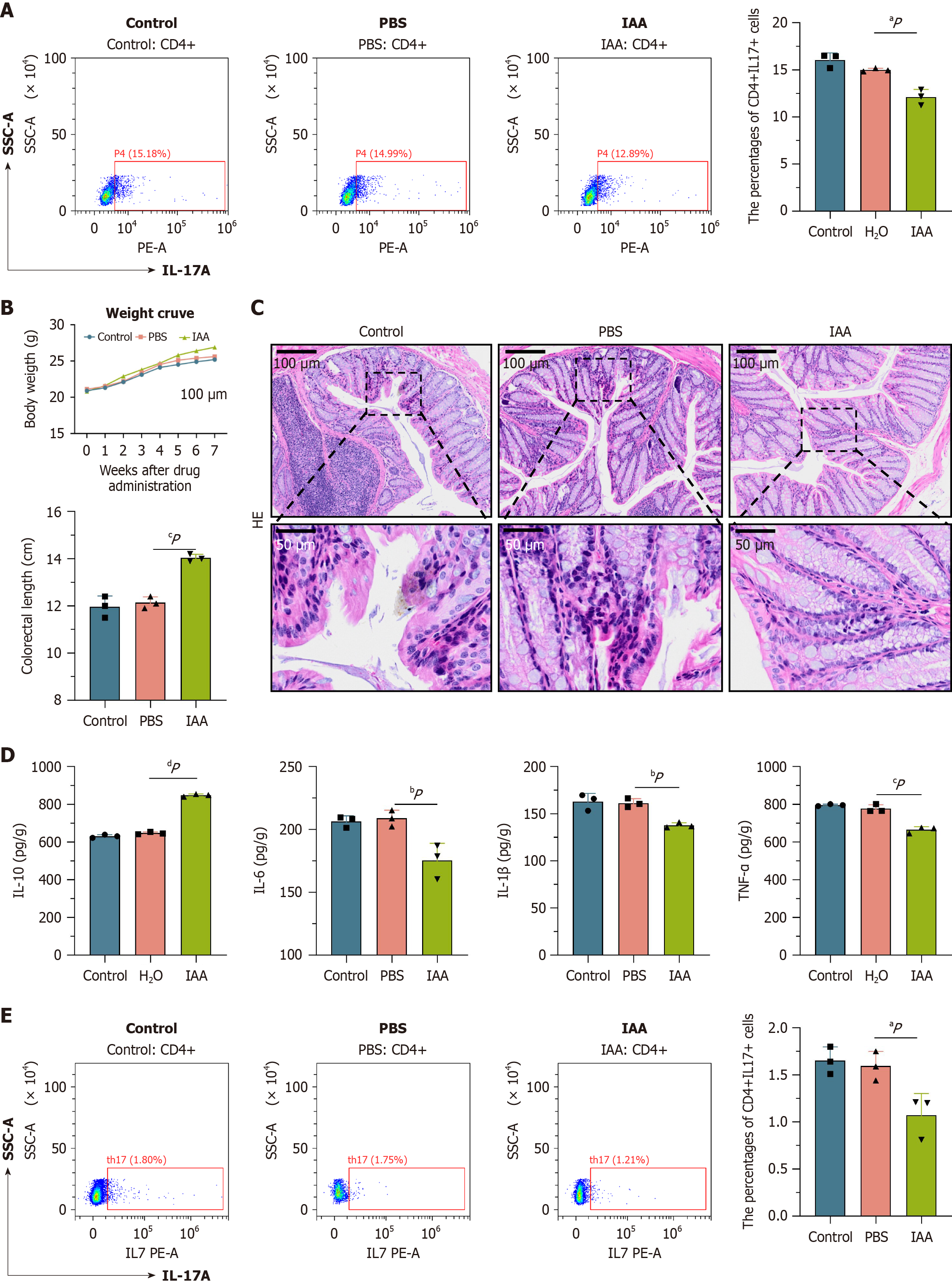Copyright
©The Author(s) 2025.
World J Gastroenterol. Jun 14, 2025; 31(22): 108815
Published online Jun 14, 2025. doi: 10.3748/wjg.v31.i22.108815
Published online Jun 14, 2025. doi: 10.3748/wjg.v31.i22.108815
Figure 6 Mice relieved intestinal inflammation after indoleacrylic acid supplementation.
A: Flow cytometry in in vitro experiments. We found that Th17 content decreased significantly in indoleacrylic acid (IAA) group compared to control group and phosphate-buffered saline (PBS) group; B: Compared with group control and PBS mice. Mice in the IAA group had a significantly increased body weight, gut length is also significantly increased; C: The hematoxylin-eosin staining of the colonic tissue of the IAA group, significant reduction of inflammatory cell infiltration; D: The expression levels of the pro-inflammatory cytokines tumor necrosis factor (TNF)-α, TNF-β, and interleukin (IL)-6 were significantly lower in the IAA group than in the other groups. However, the expression level of the anti-inflammatory cytokine IL-10 was significantly increased; E: Detection by flow cytometry, the Th 17 cells of IAA mice were significantly reduced compared to the other two groups. aP < 0.05. bP < 0.01. cP < 0.001. dP < 0.0001. PBS: Phosphate-buffered saline; IAA: Indoleacrylic acid; IL: Interleukin; CD: Cluster of differentiation; SSC-A: Side Scatter-A; PE-A: Phycoerythrin-A; HE: Hematoxylin-eosin.
- Citation: Fu R, Zhang P, Zhang JW, Hong Y, Chen B, Cao GD. Intermittent fasting exacerbates colon inflammation by promoting Th17 cell differentiation through inhibition of gut microbiota-derived indoleacrylic acid. World J Gastroenterol 2025; 31(22): 108815
- URL: https://www.wjgnet.com/1007-9327/full/v31/i22/108815.htm
- DOI: https://dx.doi.org/10.3748/wjg.v31.i22.108815









